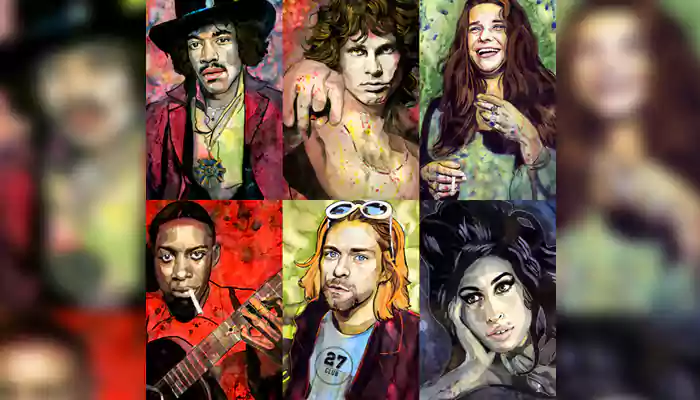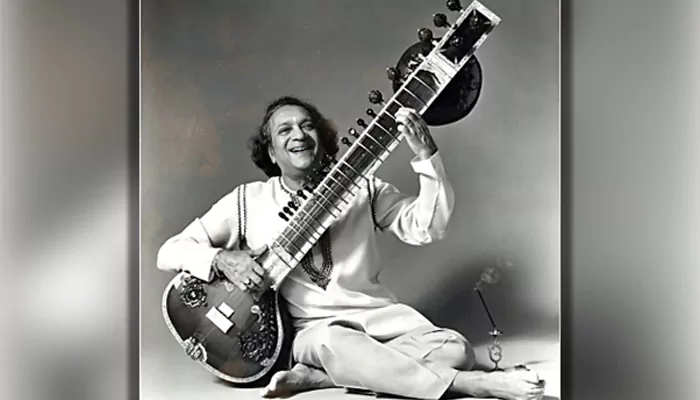Jim Morrison: Decoding the Doors of Legend - 10 Birthday Nuggets for True Aficionados!
- Admin
- 2 years ago
- 5 minutes read

Jim Morrison, an icon transcending rock, embodies the quintessence of a poet, singer, and filmmaker. His psychedelic creations persist through the ages, resonating with future rock enthusiasts while mourning the untimely departure of a legend. Commemorating the maestro's 80th birth anniversary, let's delve into 10 captivating facts about the Lizard King.
The Lizard King’s Nicknames
His moniker, Mr. Mojo Risin', cleverly conceals the true identity of Jim Morrison as an anagram. Interestingly, before The Doors embarked on their inaugural album, Morrison contemplated adopting the stage name "James Phoenix." However, the resolute response from keyboardist Ray Manzarek emphatically vetoed the idea, stating, "No way." This snippet of rock history showcases Morrison's playful wordplay and the collaborative dynamics within The Doors, revealing the creative journey that shaped the iconic figure known as the Lizard King.
Love Me Multiple Times
Jim Morrison, a charismatic figure, navigated a complex romantic landscape. Despite his committed relationship with Pamela Courson, he engaged with both groupies and fellow musicians such as Grace Slick. His life took a legal turn as, during his passing, he faced 10 pending paternity actions. In a less-than-romantic episode, Janis Joplin confronted Morrison at a party, wielding a bottle of alcohol in response to his disrespectful behavior. These tales add layers to the enigmatic persona of the rock icon, portraying a complex interplay between love, passion, and the tumultuous world of rock and roll.
Why ‘The Doors’
The band's moniker, 'The Doors,' draws inspiration from Aldous Huxley's work, 'The Doors of Perception,' delving into the realm of psychedelic substances unlocking perception's portals. Huxley's title itself echoes William Blake's 'The Marriage of Heaven and Hell,' proclaiming, "If the doors of perception were cleansed everything would appear to man as it is, infinite." This literary lineage, from Blake to Huxley, profoundly influences the band's ethos, encapsulating the transcendental and expansive essence that defines their musical and philosophical journey.
Death: Ironies And Coincidences
Before securing a record deal with Elektra in 1966, he confided in the band about a peculiar plan—faking his death to boost their fame. Morrison's demise in 1971 resulted in a staggering surge in album sales. In 1970, amid Janis Joplin and Jimi Hendrix's untimely deaths, he allegedly remarked to friends in a bar, "You're drinking with number three."
27 Club

At the tender age of 27, Jim Morrison became a part of the "27 Club," a notable assembly of musicians meeting their fate at this poignant age. This exclusive group includes luminaries such as Rolling Stones co-founder Brian Jones, virtuoso guitarist Jimi Hendrix, soulful songstress Janis Joplin, grunge icon Kurt Cobain from Nirvana, and the talented singer Amy Winehouse. The enigmatic allure surrounding these artists, all departing at 27, adds a mystique to their legacies, making them forever etched in the annals of music history.
The Indian Accident
At the core of Morrison's narrative lies a pivotal childhood experience—an impactful encounter with a car crash on a Native Indian reservation at the age of four. Despite variations in recollections between Morrison and his family present during the incident, this episode profoundly shaped his artistic expressions, notably evident in works like 'Peace Frogs.' The haunting imagery of "Indians scattered all over the highway, bleeding to death" finds its roots in this transformative childhood event, a recurring motif reflecting Morrison's complex relationship with memory and inspiration.
Biggest Bookworm Ever
Morrison's intellectual appetite extended beyond music; he devoured literature, intriguing even his teachers with obscure book choices for his reports. His reported IQ of 149 reflected a sharp mind. Delving into the works of Nietzsche, Plutarch, Rimbaud, Kerouac, Ginsberg, Baudelaire, and Kafka, Morrison absorbed a vast literary landscape that profoundly shaped his poetic philosophy and musical compositions.
Troublemaker And Rebel
Morrison's penchant for unruly behavior and his defiant attitude often led to encounters with the police. His notoriety peaked when he achieved the dubious distinction of becoming the inaugural rock vocalist to be arrested on stage, a moment etched in history during a notorious concert in New Haven, Connecticut, in late 1967. This incident only served to enhance the enigmatic allure surrounding his on-stage persona, contributing to the mystique that surrounded the iconic singer.
Morrison’s Swan Song
The ultimate recording with The Doors before Jim Morrison's untimely death was 'Riders on the Storm,' a deeply cherished piece for his admirers. Beyond its lyrics, Morrison added whispered lines during overdubbing, rendering it one of the most eerie tracks in the singer's musical repertoire.
The Holy Mecca Of Morrison’s Fans
Though Jim Morrison hailed from the USA, he met his untimely demise in Paris due to a drug overdose. His final resting place at Père Lachaise Cemetery has transformed into a sacred site for the legendary singer. Remarkably, it ranks as the city's fourth most visited attraction, trailing only the Eiffel Tower, Notre Dame, and the Louvre. Since 1973, the gravestones at his memorial have been pilfered at least five times, adding a mystique to the lasting tribute to the iconic frontman of The Doors.












